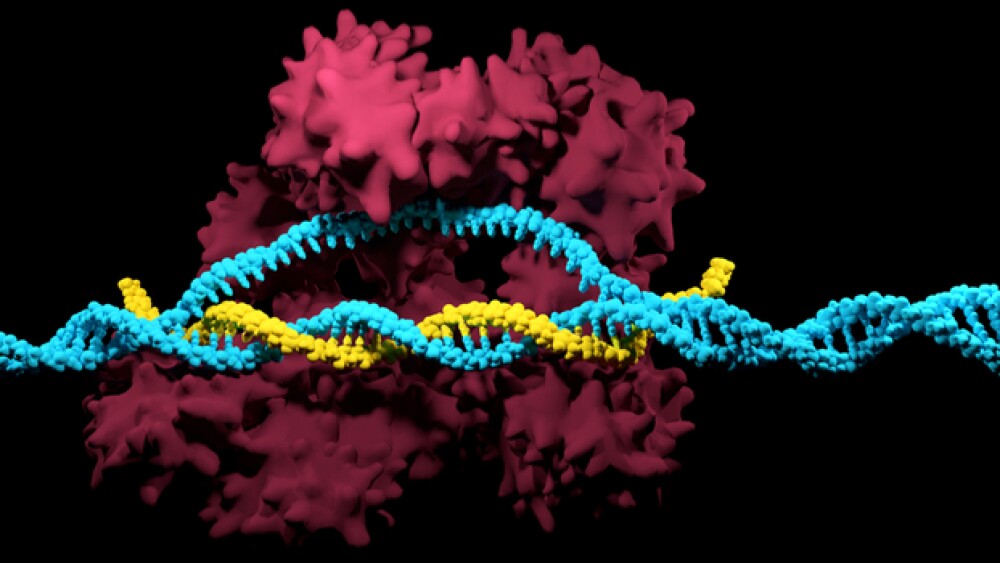In November 2018, Chinese researcher He Jiankui announced he had used CRISPR gene editing to modify the CCR5 genes in the embryos of seven Chinese couples. This was met by widespread condemnation, investigations and a call for a global moratorium against that type of research.
In November 2018, Chinese researcher He Jiankui announced he had used CRISPR gene editing to modify the CCR5 genes in the embryos of seven Chinese couples. This was met by widespread condemnation, investigations and a call for a global moratorium against that type of research.
And in June, a Russian molecular biologist, Denis Rebrikov, told the journal Nature he was considering using CRISPR to modify the CCR5 genes that will be implanted into mothers who are HIV-positive.
Theoretically, the modification of the CCR5 gene would give the resultant children resistance to the HIV virus. However, research published by researchers at the University of California, Berkeley in June found that there are likely unintended consequences, including a significantly higher death rate between the ages 41 and 78 and a four-fold increased risk of dying from the flu.
Recent news has come out about He Jiankui, who was placed under house arrest by the Chinese government. According to the Nikkei Asian Review, He is currently under police investigation and was fired from his teaching and research position at the Southern University of Science and Technology in Shenzhen.
In addition, He is involved as an investor or executive in at least eight Chinese companies. He founded Direct Genomics in 2012 with plans to commercialize technology he worked on with Stephen Quake at Stanford University. In June, He gave up his one-third stake in the company and stepped down as chairman and board member.
“By severing ties now, the company hopes to avoid further damage to its reputation,” stated Eben Kirksey, a professor with Australia’s Deakin University. Kirksey recently interviewed Direct Genomics officials as part of research for a book on gene editing he is working on. “Direct Genomics claims to have not been involved in his CRISPR experiment and the staff say that they did not even know that it was being planned.”
Although Quake has been listed by Direct Genomics as part of the company’s scientific advisory board, Nikkei Asian Review indicates he denied through a spokesperson that he had ever been directly involved after the experiment became public. In addition, Nobel Prize-winning researcher Craig Mello of the University of Massachusetts who had been on Direct Genomics’ advisory board resigned shortly after He’s original announcement.
In the United States, three senators this week introduced a resolution in support of the moratorium and other limits on gene editing embryos. The resolution came from Sens. Dianne Feinstein (D-Calif.), Marco Rubio (R-Fla.), and Jack Reed (D-R.I.). The resolution is largely for show, because U.S. law already makes it illegal to edit embryos with the purpose of creating children.
However, some members of Congress have spoken out recently about lifting the ban on gene editing used in pregnancies, and the resolution may be viewed as a way of heading off any debate on the subject.
“Gene editing is a powerful technology that has the potential to lead to new therapies for devastating and previously untreatable diseases,” Feinstein said in a statement. “However, like any new technology, there is potential for misuse. The international community must establish standards for gene-editing research to develop global ethical principles and prevent unethical researchers from moving to whichever country has the loosest regulations.”
In many ways, the resolution appears to simply support the international commission founded by the U.S. National Academy of Medicine, the U.S. National Academy of Sciences, and the Royal Society of the UK in May. That group is trying to develop a framework for researchers to utilize when planning clinical applications for germline editing.
The Senate resolution also suggests the U.S. State Department should partner with international organizations to come to a global consensus on the framework.





